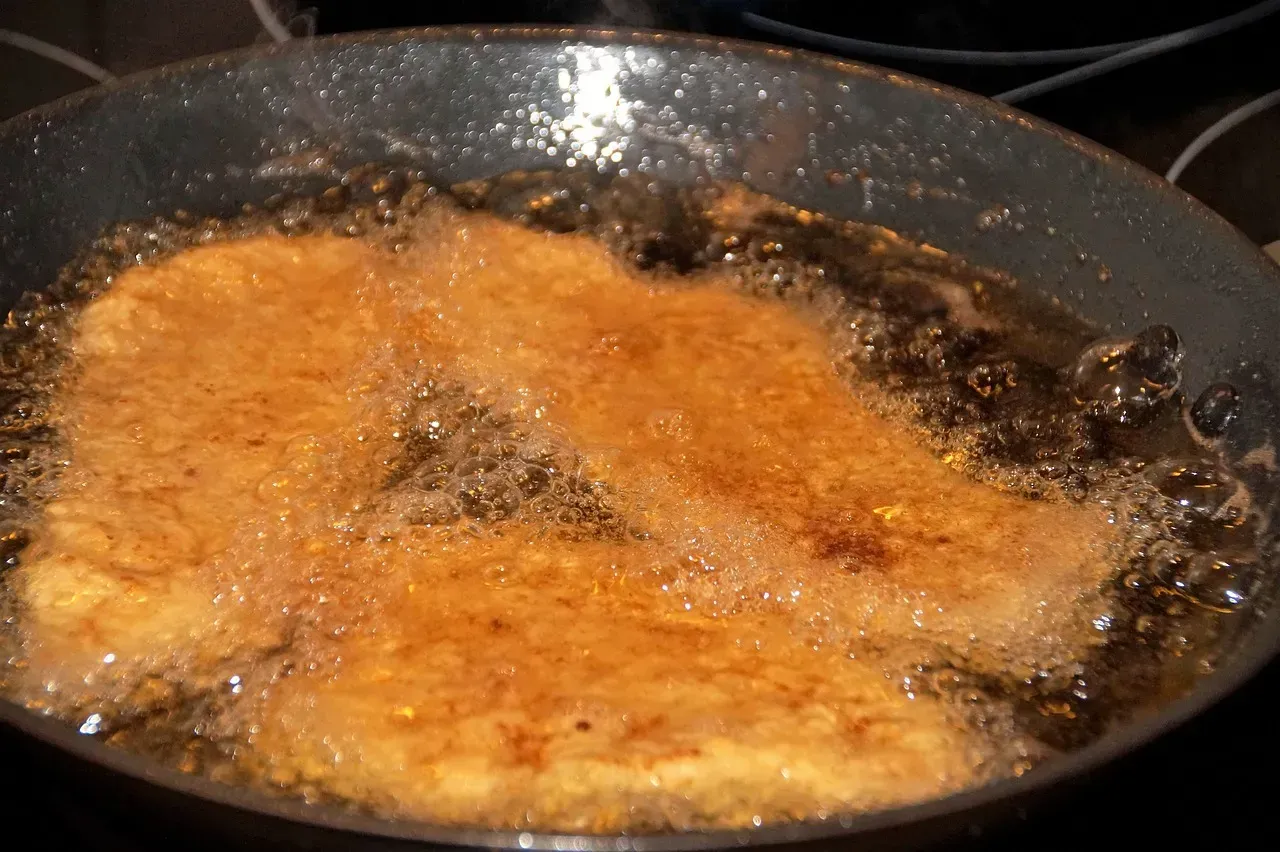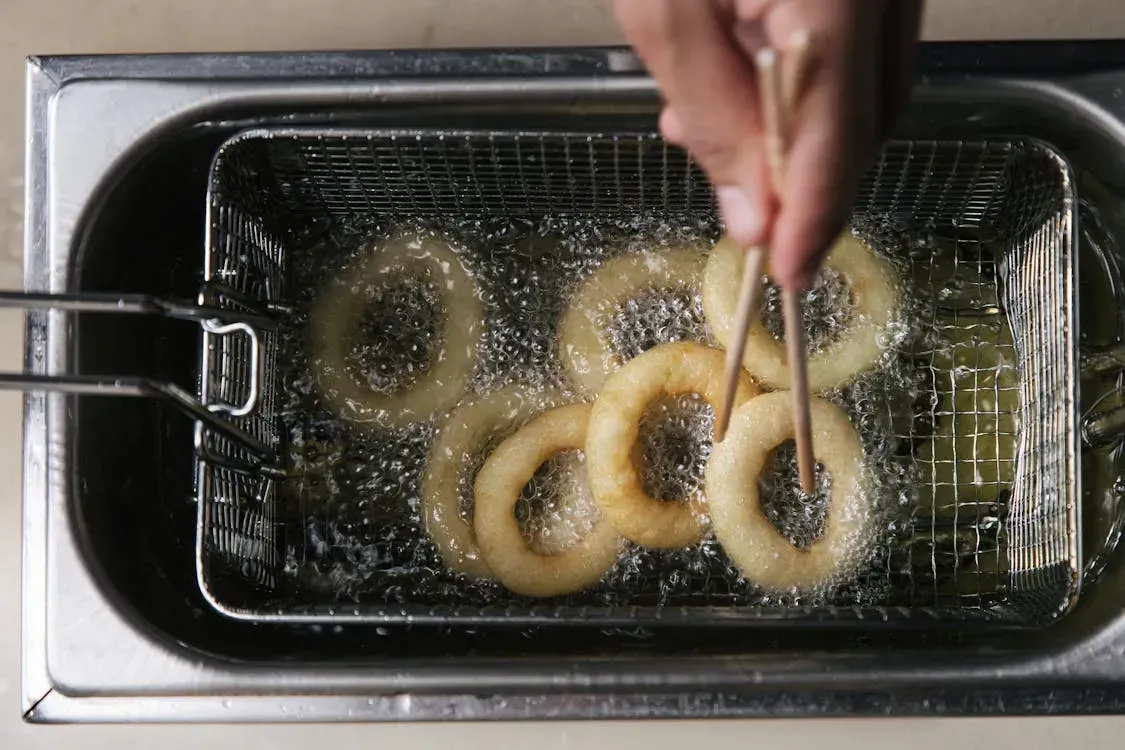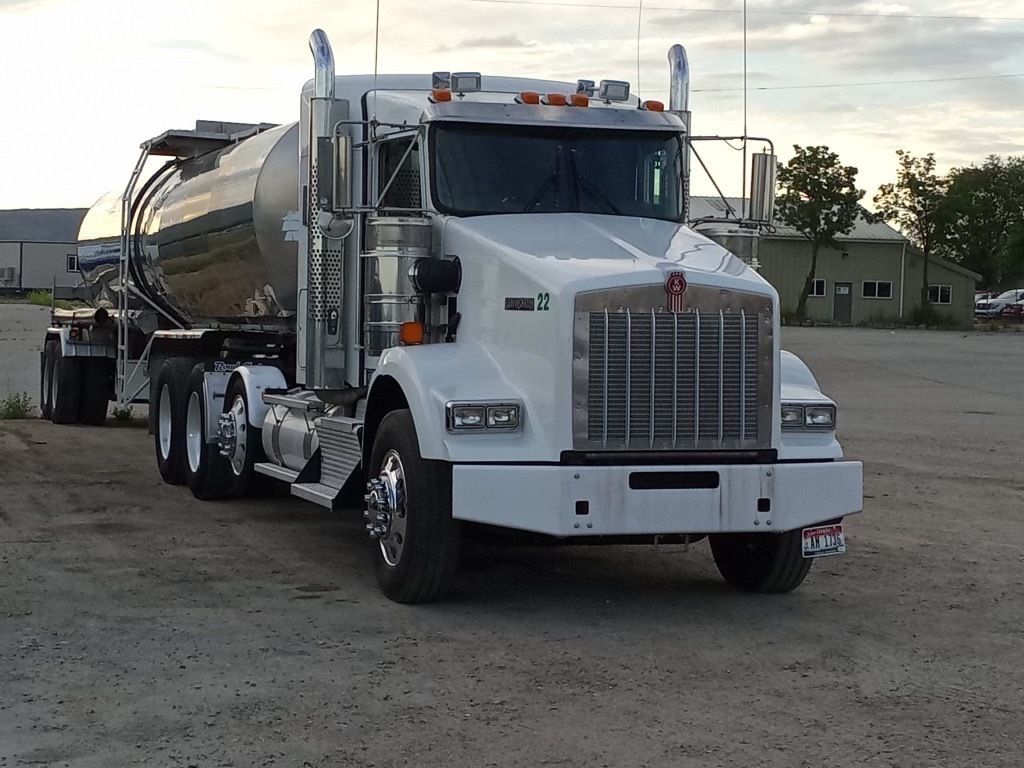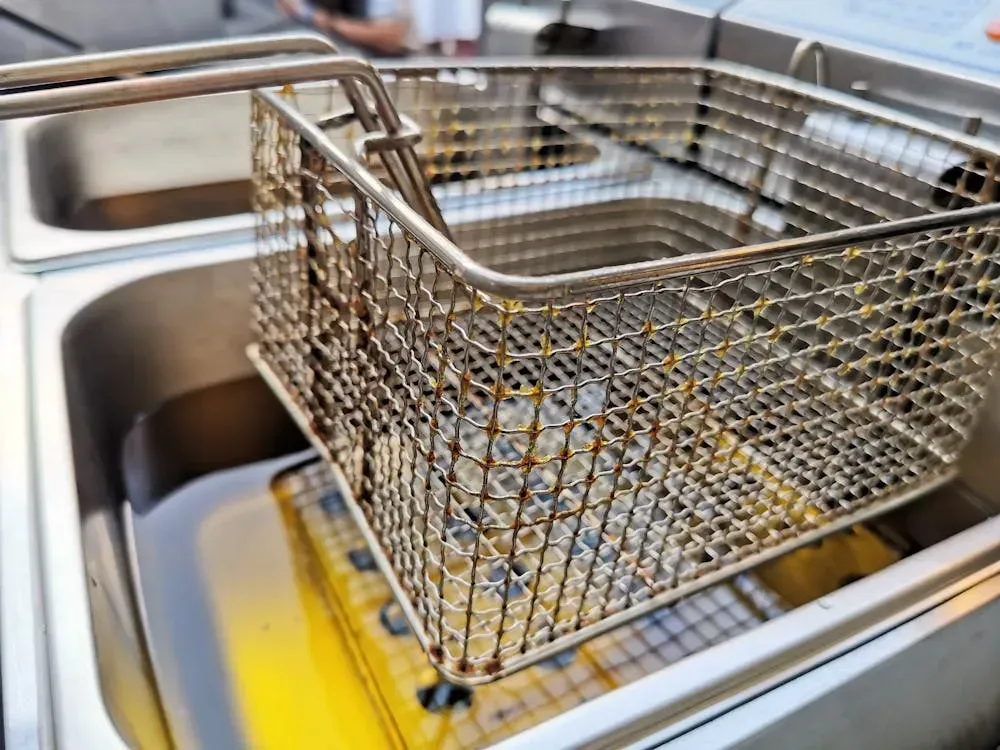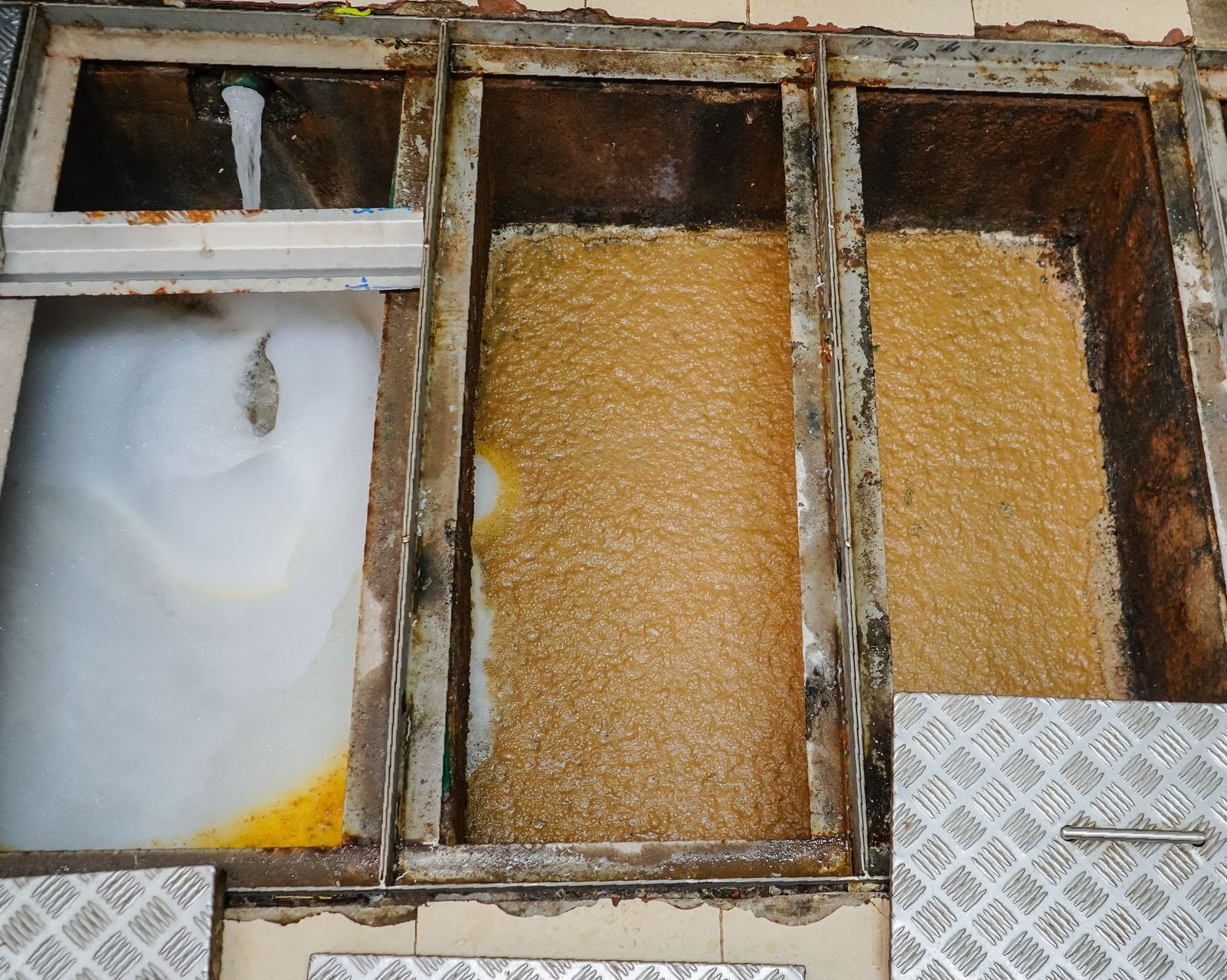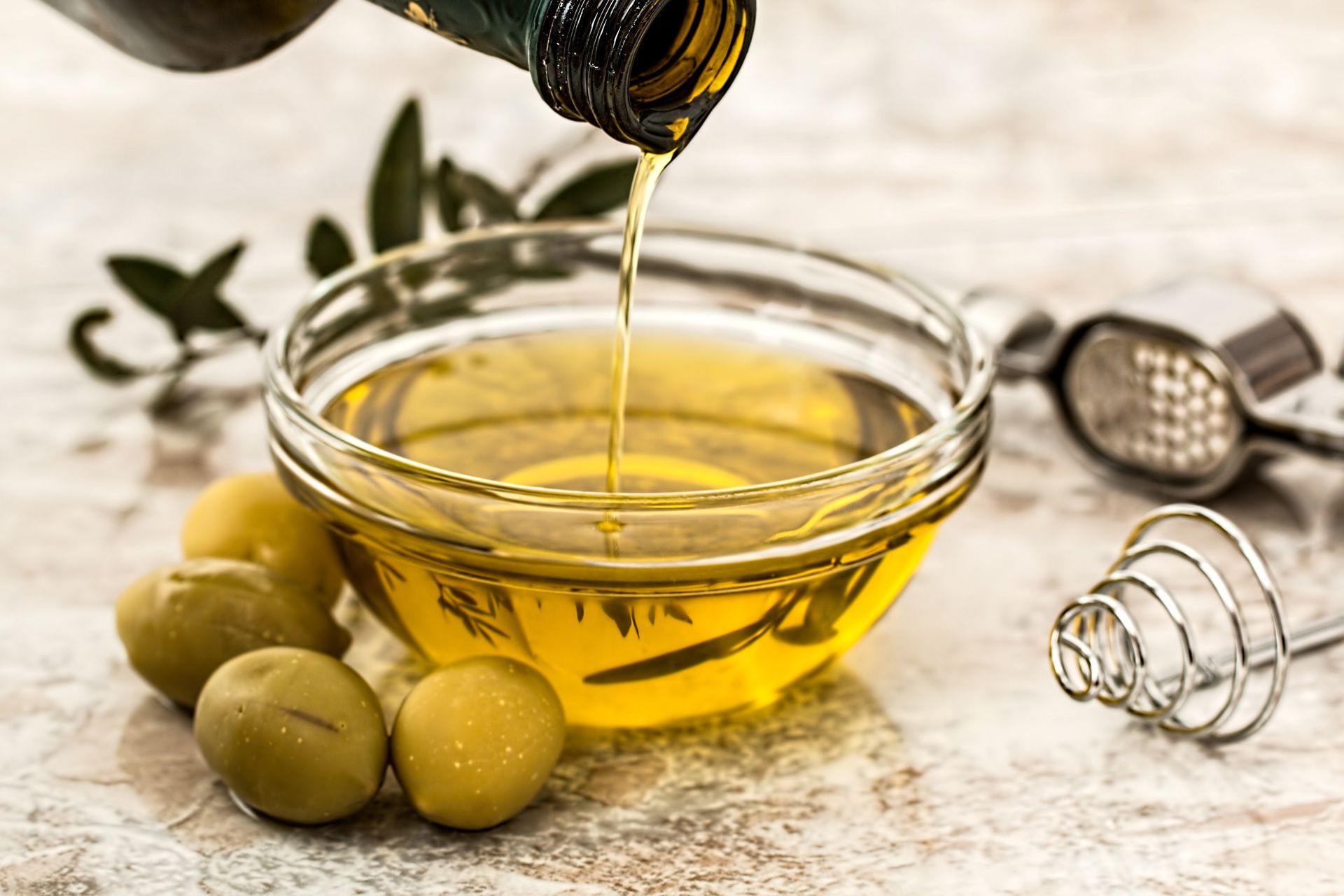Ultimate Guide to Cooking Oil Collection: Tips and Benefits
Welcome to the world of cooking oil collection, a key player in the realm of sustainable living and environmental stewardship. In the United States, our kitchens are more than just spaces for culinary exploration; they're also a hotspot for one of the most underrated yet significant forms of recycling - cooking oil collection.
Every year, millions of gallons of used cooking oil are generated in American homes. You might not think much of that greasy byproduct from your delicious fried chicken dinner, but it's a big deal. Improper disposal of used cooking oil can lead to major environmental issues, like clogged pipes and polluted waterways. But here's the kicker: when collected and recycled correctly, this 'waste' transforms into a resource, contributing to a greener planet and even fueling industries!
In this comprehensive guide, we're diving deep into the what, why, and how of cooking oil collection in the U.S. We're talking about its environmental impact, practical collection methods, economic considerations, and much more. This isn't just about getting rid of grease; it's about understanding its value and making smart, sustainable choices. Let's get started!
Definition
First up, let's define cooking oil collection. It's the process of gathering used cooking oils – think vegetable oil, canola oil, olive oil, and even bacon grease – from households and commercial kitchens. These oils, once a staple for frying or sautéing, become a liability if not handled correctly post-use. In the U.S., this process is gaining traction as more people recognize the value of recycling these oils.
Why does this matter? Well, when you understand what cooking oil collection is, you start to see your kitchen waste differently. That oil leftover from Sunday's brunch? It's not just waste; it's a resource. This mindset shift is crucial for effective environmental management.
Environmental Impact
Understanding the environmental implications of cooking oil collection is critical. It's about more than just getting rid of waste; it's about protecting and preserving our planet.
a. Benefits of Recycling
Recycling cooking oil is immensely beneficial for the environment. Firstly, it significantly reduces waste in landfills. When oil is recycled, it's converted into products like biodiesel, which is cleaner than fossil fuels and reduces our carbon footprint. This process also prevents the oil from entering and harming our water systems, protecting aquatic life and preserving water quality. In the U.S., using recycled oil for biodiesel has been shown to lower greenhouse gas emissions by up to 86% compared to traditional diesel. Moreover, this recycling process creates jobs in the green energy sector, bolstering the economy while benefiting the environment.
b. Negative Consequences of Improper Disposal
Improper disposal of cooking oil has far-reaching negative consequences. When oil is poured down drains, it can solidify and block sewage lines, leading to expensive and disruptive repairs for municipalities. These blockages, often referred to as 'fatbergs,' are a growing problem in U.S. cities, costing millions in maintenance. The environmental damage extends beyond clogged pipes; when oils make their way into natural water bodies, they create a film on the water surface, disrupting oxygen flow and harming aquatic ecosystems. It also contributes to pollution, as decomposing oil in landfills emits methane, a potent greenhouse gas that accelerates climate change.
c. Recycling vs. Disposal Methods
The contrast between recycling and traditional disposal methods is stark. While disposal in landfills or through sewage systems leads to environmental degradation, recycling offers a sustainable alternative. Recycling not only conserves natural resources but also reduces pollution and energy consumption associated with producing new materials. In the U.S., the rise of cooking oil recycling programs is a testament to a growing awareness and commitment to sustainable practices. These programs not only reduce environmental impact but also demonstrate how a circular economy can be both practical and beneficial.
Collection Logistics and Methods
Efficiently collecting and storing used cooking oil is key to maximizing its environmental benefits. Let's explore the practicalities of this process.
a. Efficient Home Storage and Collection
For individuals, proper storage is essential. After cooling the oil, it's best to pour it into a sturdy, airtight container. This not only prevents spills and odors but also makes transportation easier. Labeling these containers helps in identifying them for proper disposal. Many Americans are now adopting these practices, and local community centers often provide information on where to take the oil for recycling. During holiday seasons, when frying foods is prevalent, special collection events are sometimes organized, making it convenient for residents to participate in oil recycling.
b. Challenges in Different Communities
The challenges of oil collection vary across communities. In urban areas, the proximity to collection centers makes it easier for residents to recycle their oil. However, in rural areas, where such facilities might be scarce, residents face logistical challenges. Addressing this, some communities have started mobile collection services and community-led initiatives, ensuring that everyone has access to oil recycling facilities. These initiatives not only facilitate recycling but also foster a sense of community and shared responsibility towards the environment.
c. Types of Collection Programs
The U.S. boasts a variety of collection programs, each tailored to meet the needs of different communities and businesses. Government-run programs often focus on household oil collection, providing residents with accessible drop-off points. On the other hand, private companies frequently collaborate with restaurants and other food businesses, managing larger volumes of oil. These programs are increasingly incorporating technology, like apps and online platforms, to make oil recycling more efficient and user-friendly. The evolution of these programs reflects a growing recognition of the importance of sustainable practices in waste management.
Economic Considerations
The economic aspect of cooking oil collection is as important as the environmental one. It's not just about saving the planet; it's also about smart economics.
a. Financial Incentives for Recycling
Financial incentives play a crucial role in promoting cooking oil recycling. In the U.S., various programs offer monetary rewards or tax benefits for individuals and businesses that participate in oil recycling. These incentives not only encourage more people to recycle but also help offset the costs associated with the collection and processing of used oil. For businesses, especially in the food industry, this can translate into significant savings and a boost in their sustainability credentials, which is increasingly important to consumers.
b. Cost-Effectiveness of Collection Methods
When it comes to collection methods, cost-effectiveness is key. Different methods have varying costs associated with them. For instance, curbside collection programs, while convenient, can be more expensive due to the need for specialized equipment and frequent pickups. Drop-off centers, on the other hand, are a more cost-effective solution, especially for individual households. In the U.S., many local governments and private organizations are analyzing these costs to develop the most efficient and economical collection systems.
c. The Market for Recycled Cooking Oil
The market for recycled cooking oil is booming. Used cooking oil is a valuable commodity, primarily used to produce biodiesel, a renewable alternative to traditional diesel fuel. The demand for biodiesel in the U.S. has surged, driven by environmental regulations and the growing awareness of renewable energy's benefits. This demand has created a vibrant market for recycled oil, providing an additional revenue stream for those involved in its collection and processing. It's a classic example of how environmental sustainability can go hand in hand with economic profitability.
Social and Public Engagement
Engaging the public and raising social awareness is pivotal in the success of cooking oil recycling programs. It's about building a community that's informed, involved, and motivated.
a. Promoting Awareness and Education
Education is the first step in promoting awareness. In the U.S., many organizations and local governments invest in educational campaigns to inform the public about the importance of cooking oil recycling. These campaigns use various mediums, from social media to community workshops, to reach a wide audience. They focus on educating people about the environmental and economic benefits of recycling and providing practical advice on how to do it.
b. Inspiring Action and Building Community
Inspiring action goes beyond mere awareness. It's about motivating individuals and communities to take concrete steps towards recycling their cooking oil. In many U.S. cities, community-led initiatives, such as recycling challenges and school programs, have been effective in building a community spirit around this cause. These initiatives not only promote recycling but also strengthen community bonds, creating a sense of shared responsibility and collective action.
c. Combating Misinformation and Myths
Misinformation and myths can be significant barriers to effective recycling. In the U.S., efforts are being made to combat these through factual and transparent communication. Debunking common myths about cooking oil recycling, like the belief that it's inconvenient or ineffective, is crucial. By providing clear, accurate information, these efforts help to build trust and encourage more people to participate in recycling programs.
Additional Concerns in Cooking Oil Collection
Delving into additional concerns helps provide a fuller picture of the cooking oil collection landscape in the U.S.
a. The Future of Cooking Oil Collection
The future of cooking oil collection in the U.S. is promising, marked by technological advancements and a growing environmental awareness. Innovations are emerging in collection methods and processing technologies, aiming to make recycling more efficient and eco-friendly. New developments include filtration systems for direct reuse of cooking oil in kitchens and smart containers that signal when they are full, optimizing the recycling process.
b. Health and Safety Issues
Health and safety are paramount in the collection and recycling of cooking oil. Regulations exist to ensure safe handling practices, including guidelines for transportation, storage, and processing. Ongoing research is also critical to assess any potential health impacts of products made from recycled cooking oil, ensuring compliance with safety standards. These regulations are vital for safeguarding workers in the recycling industry and guaranteeing the safety of the end products.
c. Regulations and Policies
The regulatory framework governing cooking oil recycling in the U.S. is continually evolving. Federal and state regulations oversee various aspects of cooking oil collection, transportation, and processing to ensure environmental protection and public safety. The EPA provides guidelines for the disposal and recycling of fats, oils, and greases, including cooking oil. Additionally, many states have their own regulations and incentive programs to promote cooking oil recycling, making adherence to these regulations essential for individuals and businesses involved in the process.
Practical Applications and Local Services
When considering practical solutions for cooking oil recycling, it's important to be aware of local services that make this process efficient and accessible.
Eco of Idaho: Leading the Way in Cooking Oil Recycling
In areas like Boise, ID, Idaho Falls, ID, and Le Grande, OR, Eco of Idaho stands as a prime example of effective cooking oil recycling services.
Let's explore what makes them a notable choice:
- Grease Trap Cleaning and Oil Collection: Businesses, particularly in the food industry, benefit from Eco of Idaho’s expertise in keeping grease traps clean. Compliant with health and environmental regulations, they also offer an oil collection service. By recycling the collected oil, they can offer more affordable services for grease trap maintenance, making it financially feasible for businesses.
- Cooking Oil Collection for Homes and Businesses: Eco of Idaho provides a straightforward solution for households and commercial establishments to recycle cooking oil. Their service turns potential waste into a resource, simplifying the recycling process for their clients.
- Efficient Grease Trap Pumping: Their services extend to regular maintenance of grease traps, crucial for businesses handling large volumes of cooking oil. This not only ensures operational efficiency but also adheres to safety standards.
- Bulk Waste Water Transport: Handling the byproducts of cooking oil and grease, Eco of Idaho also manages large-scale wastewater transport. This service plays a key role in maintaining community health and environmental safety.
Affordability and Convenience with Eco of Idaho
Choosing Eco of Idaho for cooking oil recycling comes with several advantages:
- Cost-Effective: Their ability to recycle cooking oil allows them to offer more affordable rates, particularly for grease trap services.
- One-Stop Solution: They provide multiple services, from grease trap cleaning to oil collection, making them a convenient choice for businesses and households.
- Environmental Impact: By opting for their services, customers contribute to a sustainable practice that benefits the environment.
If you're in Boise, Idaho Falls, or Le Grande and looking to participate in environmentally responsible cooking oil disposal, consider reaching out to Eco of Idaho. They offer a comprehensive, affordable, and convenient solution to meet your cooking oil recycling needs.
Conclusion: The Importance of Cooking Oil Collection and Recycling
In wrapping up our exploration of cooking oil collection and recycling, it’s clear that this practice holds immense importance in our journey towards environmental sustainability. Whether it's through individual actions at home or larger-scale initiatives by businesses, every effort in properly disposing of and recycling cooking oil contributes significantly to a healthier planet.
Key Takeaways
- Environmental Impact: Cooking oil recycling plays a crucial role in reducing landfill waste, preventing sewer blockages, and lowering greenhouse gas emissions. It's an essential component in the broader picture of sustainable living.
- Economic Benefits: Beyond environmental preservation, cooking oil recycling offers economic advantages. From creating jobs in the green energy sector to providing cost savings for businesses through services like those offered by Eco of Idaho, the economic implications are both positive and far-reaching.
- Community and Education: The success of cooking oil recycling hinges on public awareness and community involvement. Educational campaigns and community-led initiatives are vital in promoting responsible recycling practices.
- Future Prospects: With technological advancements and an evolving regulatory landscape, the future of cooking oil collection looks promising. These developments are set to make the process more efficient, safe, and widespread.
- Local Solutions: Services like those provided by Eco of Idaho demonstrate how local solutions can effectively meet the needs of cooking oil recycling, offering convenience, affordability, and environmental responsibility.
A Call to Action
As we continue to advance in our understanding and implementation of sustainable practices, it's important for each of us to play our part. Consider how you can contribute to cooking oil recycling in your daily life, whether it’s through utilizing local services like Eco of Idaho or simply being mindful of how you dispose of cooking oil at home.
Remember, every small step counts in making a big difference for our environment. Let’s commit to responsible cooking oil collection and recycling – for our planet, our communities, and future generations.
Contact Information
Phone: (208) 867-4607
Email: info@ecoofidaho.com
Address: 1990 S Cole Rd, Boise, ID 83709, United States of America

